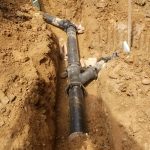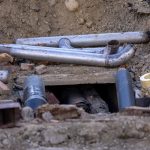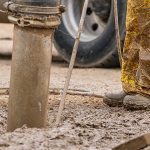Geotechnical Investigation: Why You Need It for Your Road Project
Road construction is a complex undertaking that requires meticulous planning and execution, and one of the most important aspects of any successful road project is a thorough geotechnical investigation. This process involves a comprehensive evaluation of the soil and rock conditions beneath the proposed road alignment. Understanding the subsurface conditions is essential for several reasons, including ensuring the stability and safety of the road structure, optimising construction methods, and minimising potential risks and costs.
The Importance of Pavement Investigations
Pavement investigations are an integral part of any geotechnical assessment for road projects. They aim to determine the suitability of the existing ground for supporting the pavement structure. Factors such as soil type, strength, and moisture content significantly influence pavement performance.
- Soil Classification: Pavement investigations involve detailed soil classification tests to determine the type and properties of the soil. This information helps engineers select the appropriate pavement materials and design the pavement layers to withstand the anticipated traffic loads.
- Soil Strength and Bearing Capacity: The strength and bearing capacity of the soil are crucial factors in determining the thickness and type of pavement required. Weak soils may require additional layers of reinforcement or stabilisation to support the pavement structure.
- Moisture Content and Drainage: Soil moisture content can significantly impact pavement performance. Excessive moisture can lead to soil expansion and contraction, causing pavement cracking and deformation. Therefore, pavement investigations include assessments of soil moisture content and drainage conditions to ensure proper water management within the pavement structure.
The Role of Geotechnical Investigations in Road Design
Geotechnical investigations provide valuable data that informs critical decisions throughout the road design process.
- Foundation Design: Understanding the soil and rock conditions is essential for designing appropriate foundations for bridges, culverts, and other structures. Geotechnical investigations help determine the depth and type of foundations required to ensure the stability and safety of these structures.
- Slope Stability Analysis: Road projects often involve excavations and embankments, which can be susceptible to slope failures. Geotechnical investigations, including slope stability analyses, help assess the risk of landslides and other slope failures and identify appropriate mitigation measures.
- Groundwater Assessment: Groundwater conditions can significantly impact road construction and performance. Geotechnical investigations help assess groundwater levels, flow directions, and potential impacts on the road structure. This information is used to design effective drainage systems and prevent groundwater-related issues such as erosion and settlement.
- Environmental Considerations: Geotechnical investigations can help identify potential environmental impacts of the road project, such as the presence of contaminated soils or the potential for groundwater contamination. This information is crucial for developing appropriate environmental mitigation measures.
Advanced Geotechnical Techniques for Road Projects
Recent advancements in geotechnical engineering have led to the development of new and innovative techniques for road projects.
- Ground Improvement Techniques: Techniques such as soil stabilisation, ground reinforcement, and deep mixing can improve the strength and bearing capacity of weak soils, reducing the need for extensive excavation and allowing for the construction of roads in challenging ground conditions.
- Geophysical Surveys: Geophysical surveys, such as ground-penetrating radar and seismic surveys, can provide valuable information about subsurface conditions without the need for extensive excavation. These techniques can be used to map bedrock, identify subsurface voids, and assess the thickness of soil layers.
- 3D Modelling: 3D modelling software is increasingly being used to integrate geotechnical data with other design information, such as road alignment and drainage plans. This allows engineers to visualise the subsurface conditions and assess the potential impacts of the road project in a more comprehensive and accurate manner.
Cost-Effectiveness of Geotechnical Investigations
While geotechnical investigations may involve some upfront costs, they can ultimately save significant time and money on road projects.
- Reduced Construction Costs: By accurately predicting subsurface conditions, geotechnical investigations can help avoid costly design changes and construction delays that may arise from unexpected ground conditions.
- Improved Project Performance: By ensuring that the road structure is adequately supported and protected from environmental impacts, geotechnical investigations can help improve the long-term performance and durability of the road, reducing the need for costly maintenance and repairs.
- Enhanced Safety: By identifying and mitigating potential risks, such as slope failures and groundwater-related issues, geotechnical investigations can help improve the safety of road users and reduce the risk of accidents.
In Conclusion
In conclusion, geotechnical investigations play a crucial role in the successful planning, design, and construction of road projects. By providing valuable information about subsurface conditions, geotechnical investigations help ensure the stability, safety, and long-term performance of road infrastructure.
By embracing advanced geotechnical techniques and incorporating geotechnical considerations into all stages of the road design and construction process, Australia can continue to build safe, efficient, and sustainable road networks for the future.
Contact Aussie Hydro-Vac Services
Ensure your road project’s success with expert geotechnical investigations from Aussie Hydro-Vac Services. Our experienced team provides comprehensive site assessments, including soil analysis, groundwater evaluation, and slope stability analysis throughout Northern New South Wales and Queensland. Contact us today on +61 7 3287 7818 or via our Contact page for a free consultation and discover how our services can benefit your next project.
Related Posts

Subsurface Utility Engineering (SUE): Reducing Risk and Improving Projects
Construction and infrastructure projects across Australia face numerous challenges, from managing budgets and timelines to ensuring safety and minimising disruptions.
Read more
PUP Underground Locating: Essential for Safe Excavation
Excavation is a necessary activity which ranges from large infrastructure projects to smaller residential works.
Read more
Non-Destructive Digging: The Safe and Efficient Way to Excavate
Traditional excavation methods, involving heavy machinery and extensive digging, often pose significant risks to underground utilities, the environment, and worker safety.
Read moreTalk with us today to find out more
Please call and speak with one of our friendly members of staff or send us an email using our contact form